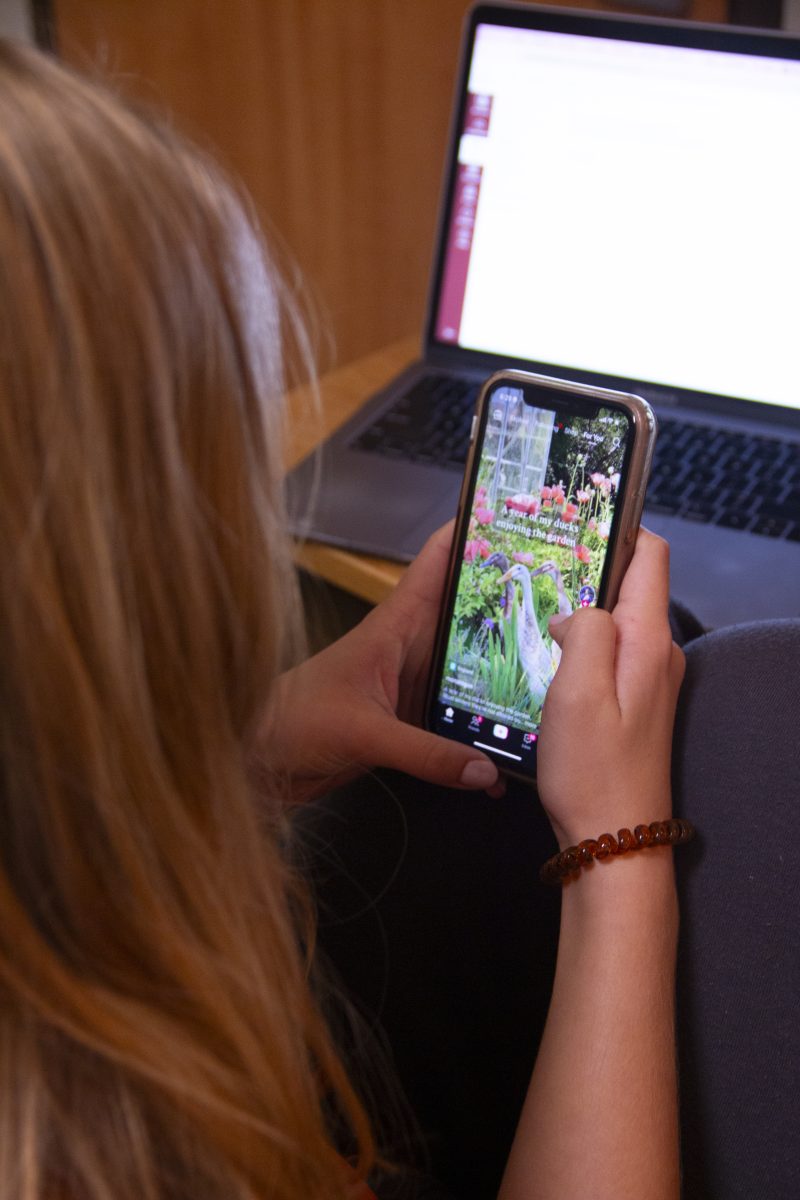Trinity University students report that phone usage affects them in positive and negative ways. Some students realize how much they use their phones — others don’t.
Grace Coleman, first-year undeclared major, shared her strategy to limit phone usage when it matters most. She explained that she deletes Instagram for a week when she has work to do. She then re-downloads the application when the work is done.
“I guess I can have withdrawals,” Coleman said. “I’ll be trying to find the app again to get on it, but then I realize that I deleted it. It makes me think about why I deleted it, so it makes me go out to do the thing that I wanted to do.”
Coleman noted that phones help her stay in touch. She explained that she uses her phone to communicate with a foreign exchange student from Italy.
“It is easier when you have people that live across the country or across the world and you are able to talk to them at a moment’s notice, or even people that you don’t know,” Coleman said.
However, she acknowledged that she may overly rely on her phone for communication. Coleman explained that with a phone she is able to better match names to faces.
“I’ve been meeting a bunch of people and getting their Instagram. Now I can’t really delete it now, because I am bad with names and faces,” Coleman said. “It helps you, in a way, to know who they are and associate them with the things that they do.”
Similarly, Vikram Kollipara, sophomore biochemistry major, said that using a phone is fun, because it gives him access to social media, text messages and important phone calls. However, he said that he believes phone usage has potential for addiction.
“People have gotten too distracted with them and they can’t really focus and do their work. I feel like everyone is going through their own personal battle. I know a lot of people are very addicted to their phone when I see them on campus,” Kollipara said.
Kollipara reported that he deleted Instagram and Brawlstars to limit his phone usage, but ended up re-downloading the applications. He acknowledged that it is addicting to always use a phone, and a lack of self-control can exacerbate addiction.
“I’ve realized that there are times when I am walking on campus and I have my phone out and I look at it while walking, and I’ll tell myself, ‘Just walk. Don’t even look at your phone’,” Kollipara said. “You realize it is more like an addiction to always have your phone. And if you have no control over yourself, it’s kinda bad.”
John Joseph Ramos Jr., junior international studies major, commented that his phone allows him to communicate, which he said he believes is essential nowadays. He explained that he texts his parents and his friends frequently.
“It is just something that you cannot really do without,” Ramos said. “If you want to be able to work with people and just to make life a little bit easier. It is important for people to be able to function daily. It is just like a lot of convenient things that you can do when you have a phone.”
Moreover, Ramos said that he believes that people “need” phones to check emails, texts and communication-related information. He noted that he uses his phone very often.
“It is just something that everyone has and it has become something like an arm or a hand, and you need to check your phone and check emails and make calls. It is very integrated into our lives,” Ramos said.










